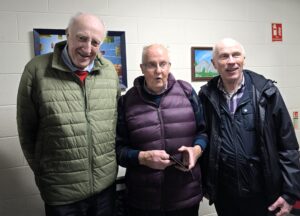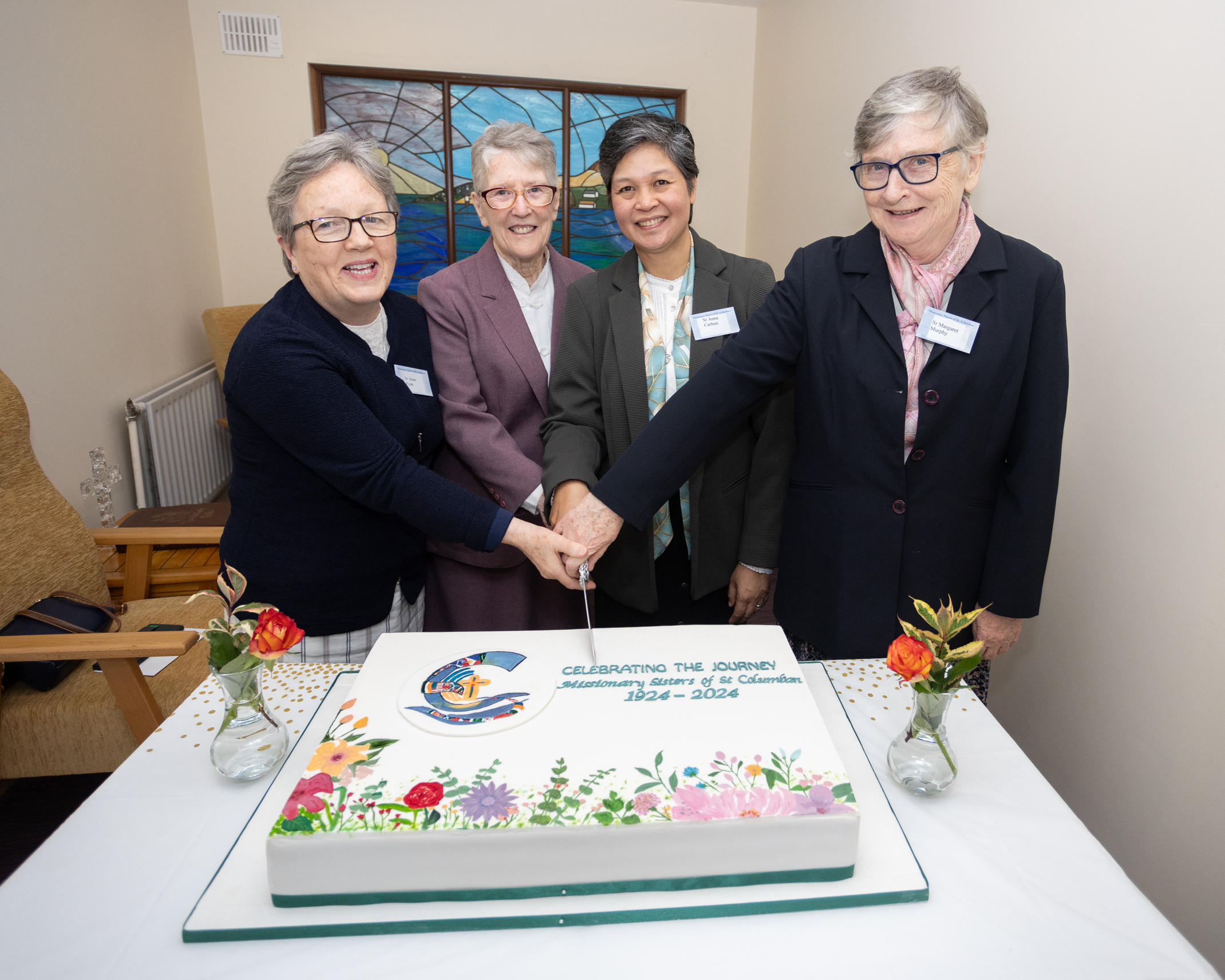The Missionary Sisters of St Columban gathered in St Patrick’s Church, Wicklow on Sunday 29th September 2024 to mark the centenary of the establishment as a congregation.
Bishop Donal Roche of the Archdiocese of Dublin presided at the Centenary Mass which was concelebrated with Fr Aquinas Duffy, parish priest of St Patrick’s Church in Wicklow, and Columbans Fr Raymond Husband, regional director in Ireland, and Fr Tim Mulroy.
The joyful occasion brought together the Columban family with many priests travelling from Dalgan to be present with the Sisters for this special anniversary.
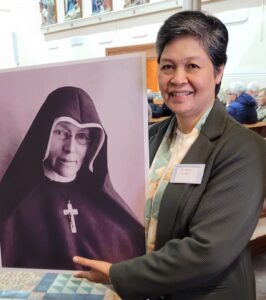
In her address, Congregational Leader, Sr Anne Carbon, SSC described the gathering in St Patrick’s as “a momentous occasion as we celebrate the Centenary of the Profession of the first seven courageous Missionary Sisters of St Columban in Cahiracon, Co Clare on 29th September 1924, establishing us as a religious Congregation.”
The Centenary theme was: ‘Celebrating the Journey’, a journey of 100 years of “God’s faithfulness to us as a Congregation,” Sr Anne told the congregation of Columban Sisters, priests, co-workers, friends, supporters and representatives of other congregations and the Association of Religious and Missionaries of Ireland (AMRI).
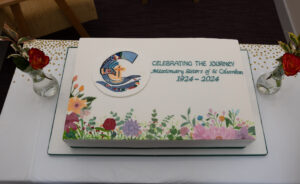
“As we look back over the last 100 years, we are full of gratitude to God who called us to be part of His work of love and service within the Church,” Sr Anne said.
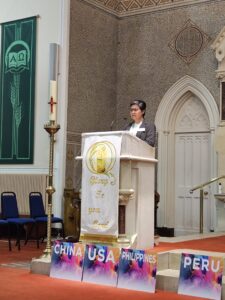
Here is the full text of Sr Anne’s Centenary Message:
On behalf of the Missionary Sisters of St. Columban, I would like to thank Bishop Roche for presiding at this Eucharist. And to Fr. Aquinas and Fr. Ger, for welcoming us to celebrate our Centenary Mass here in Wicklow parish church.
Today, is indeed a momentous occasion, as we celebrate the Centenary of the Profession of the first seven courageous Missionary Sisters of St. Columban in Cahiracon, Co. Clare on 29th September 1924, establishing us as a religious Congregation.
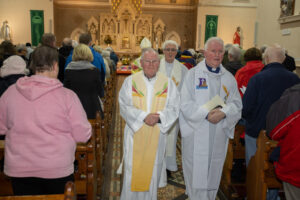
Our Centenary Theme is: “Celebrating the Journey”, a journey of 100 years of God’s faithfulness to us as a Congregation. As we look back over the last 100 years, we are full of gratitude to God who called us to be part of His work of love and service within the Church.
I would like to begin by mentioning significant people who have been at the heart of our foundation. Columban Fr John Blowick, a young Professor of Theology in Maynooth College, resigned his professorship to respond to the mission in the Far East.
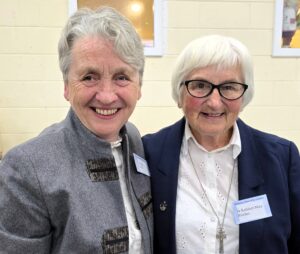
Fr Blowick together with Bishop Edward Galvin, founded the Maynooth Mission to China, which later became known as the Missionary Society of St. Columban.
Soon, the priests realized the need for women to reach out to the poor and especially to women in China. Fr Blowick appealed to the women of Ireland to collaborate with them in running hospitals, clinics, and schools. His appeal did not fall on deaf ears.
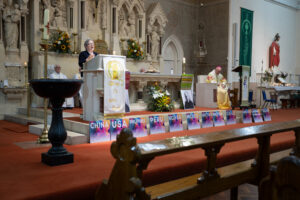
Frances Moloney, later known as Mother Mary Patrick Moloney, was one of the first to respond. She, like Fr Blowick had great faith, conviction, courage and dared to move into the unknown.
I also want to mention with much gratitude, Mother Agnes Gertrude Chamberlain, the then Superior General of the Religious Sisters of Charity, whom Fr John Blowick consulted. A woman of extensive experience and great wisdom.
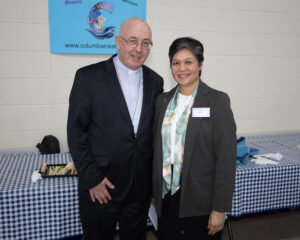
She affirmed Fr Blowick in his desire to form a new Congregation. Mother Agnes, provided three Sisters to train the women, who responded to the call of the China mission as postulants and novices in preparation for profession as Religious Sisters. I am happy to see some of the Religious Sisters of Charity here today. Thank you once again, for the generosity of your Congregation.
Many of you present here know that in the beginning of the twentieth century the Church in Ireland witnessed a special awakening to various missionary callings. These calls were responded to generously by the Irish people, who supported the foundation of a number of new missionary Congregations and Societies which pioneered ministries across the globe. Among these were the Columban Fathers founded in 1918 and the Columban Sisters in 1924.
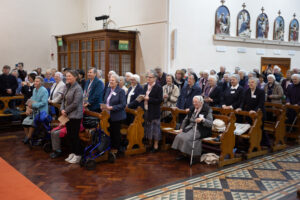
This was wonderfully displayed at the Daring to Hope exhibition, which showed the Irish Religious Sisters’ Embracing the Unknown. In faith, they went out to distant lands to respond to various needs: building schools, hospitals, social services, which they managed and ministered themselves.
As missionaries, we were warmly welcomed into the hearts and homes of the people we were called to serve. As we fully engaged in our many encounters with people of different faiths, cultures and experiences, our lives were changed.
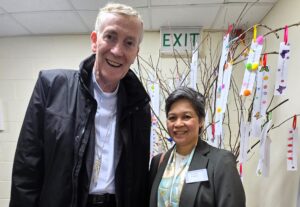
We were profoundly challenged, enriched and nourished in unimaginable ways. Even our ideas and experiences of God were broadened and deepened.
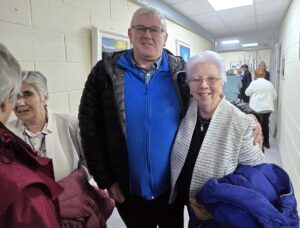
The growth and development of our mission would not have been possible without our families, friends and benefactors, who are our co missionaries. Their unwavering generosity in sharing with us their gifts, moral, spiritual and financial support, are truly an inspiration and blessing. We are sincerely grateful to all of them for journeying with us and being part of our Columban family.
Today, the reading from the Gospel of John depicts so well the kernel of our call and the living out of our missionary charism: “an experience of living joyfully God’s love, being called and chosen, to go, to share God’s friendship and love wherever we are sent.”
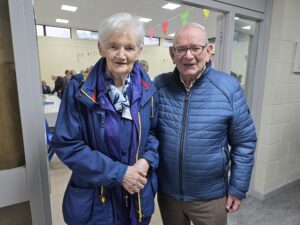
This for me is the heart of who we are as Columban Sisters: Women of faith, women who are immersed in the reality of people’s lives, sharing their struggles and challenges and responding as best we can to their needs, bearers of hope and compassion in the difficulties that life presents.
The second reading from the letter of Saint Paul to the Romans conveys our experience of being anchored in the love and grace of God – “Nothing can come between us and the love of Christ.”
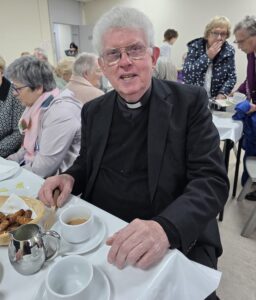
Our pioneering Sisters and all those who have gone before us, committed themselves to the daunting task of a voyage into the unknown.
They often faced difficult and dangerous situations in far- off places such as China, Chile, Myanmar, Pakistan and other places. Their courage and faith enabled them to completely trust in the Divine providence of God who never failed them.
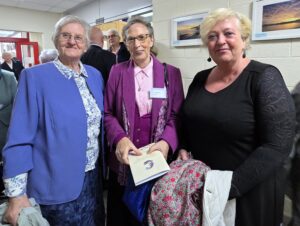
Their pioneering spirit, is still an inspiration to our own journey even today, as we experience the presence of Christ and faithfully live out our motto, “We are Christ’s not our own.”
In the early 1980s, there was a lot of discernment about what constituted mission and how best to respond. We opened many doors, often moving from institutions to pastoral care, social justice issues, care for the Indigenous people, interfaith and intercultural dialogue, and also the need to develop a program for the growing intercultural nature of the Congregation.
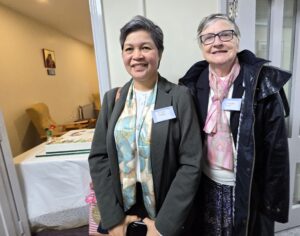
We also closed many doors along the journey. We did it in the light of our reality; accepting that we are finite, but that our missionary charism challenges us to respond to current realities and the signs of the times. In every beginning and closing, we faced and grappled with many choices, encountered many crossroads, and inevitable letting go. In all of this God was with us, constantly urging us on and guiding us through.
The 1990s, with more Sisters from the East, was a time of change in mission as the need in home areas increased. However, God’s mission is still very much alive as we witness our Sisters and many other missionaries bravely accompanying people in places that are unstable, in the midst of ongoing war, and marked by uncertainty.
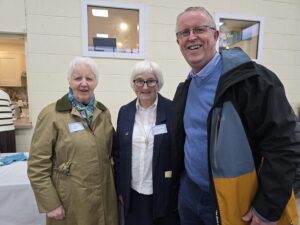
And I would like to remember our very own Sr Joan Sawyer who was brutally killed by the police, together with seven prisoners she had been visiting in Lurigancho prison in Lima, Peru.
Today, the context of our world and our understanding of mission have changed. We are standing in a liminal space, facing new challenges as we try to respond to the many needs and complexities of our broken world and fragile planet.
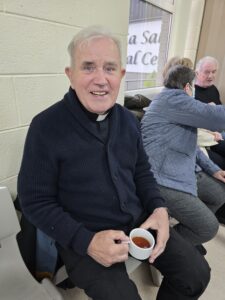
This is inviting us to cultivate a deeply discerning attitude in order to welcome the new energy of the Spirit, and to recognize where the new peripheries and new horizons call us today.
Pope Francis in his recent message for the World Day of Prayer for the Care of Creation, said, “To hope and act with creation, means to live an incarnational faith, one that can enter into the suffering and hope-filled “flesh” of others.”
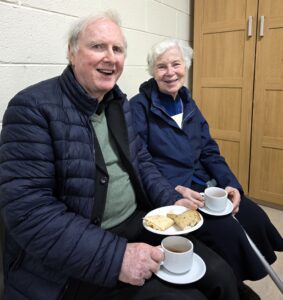
To offer HOPE is our constant call and a daunting task for all of us wherever we are.
Lastly, I would like to quote the words of our co-founder, Mother Mary Patrick, “The Spirit of the Congregation will be that of all embracing charity and no effort should be made to the various demands which may arise.”
Once again, thank you for being with us today and may God bless us all.
